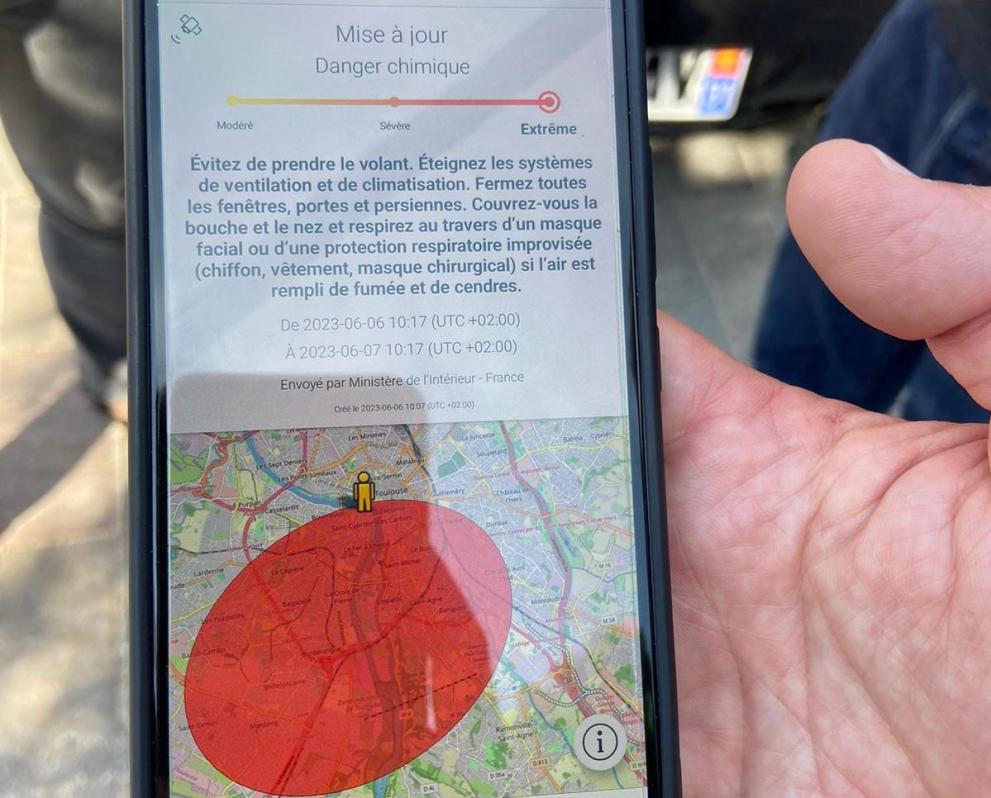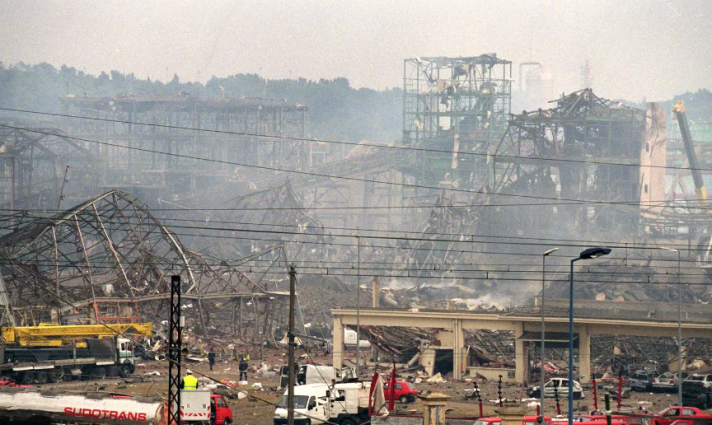
Toulouse, 21 Sep. 2001,
A large-scale chemical accident occurred on the site of the AZF factory.
A stock of 300 to 400 tons of ammonium nitrate exploded, causing the death of 31 people and injuring more than 2,500 others. Nearby, two commercial areas were shattered too. Opposite the factory, 150 public transport buses were destroyed in their warehouse. The global damage is estimated at €22 billion.
Toulouse, 6-7 June 2023
A test and demo campaign of the new EWSS service (Emergency Warning Satellite System) highlights the future Galileo alert service for broadcasting alerts to the population and for informing/reassuring/guiding the victims after a disaster.
Developed by DG DEFIS, the EWSS service (Emergency Warning Satellite System) will support and complement the current civil protection services by taking advantage of the global 24/7 infrastructure of Galileo and its signals.
Its principle is simple: It provides national civil protection authorities with a “satellite" channel enabling them to broadcast alerts to the population. This comes in addition to the multiple existing national alert services such as mobile networks, TV, radio, sirens, internet or social networks, and is completely independent of terrestrial mobile networks.
This future Galileo alert service is designed to be received directly on any device capable of processing Galileo signals: smartphone, car navigation, fixed receiver on the roofs of buildings for display on public billboards, etc.
The demonstration was carried out in the presence of the French Ministry of Interior, the Toulouse prefecture, and civil protection authorities (Service d'Aide Médicale Urgente, Town Hall, Firefighters/Service Départemental d'Incendie et de Secours).
It aimed to simulate the 2001 AZF accident, and demonstrated the effectiveness of the satellite channel for broadcasting alerts to the population and for informing/reassuring/guiding the victims after a disaster.
This exercise was deployed on 3 sites:
- the departmental operational centre of the Haute Garonne prefecture for issuing the alert,
- the SAR/Galileo service centre at CNES in Toulouse for Galileo system operations,
- and in the streets of Toulouse for receiving the smartphone alert.
It was a great success, with rapid dissemination of messages (a few seconds after they were sent), and a targeting precision of the alert zone concerned within a few meters.
The objective is to deliver a first commissioning from 2025. The demos were carried out as part of a Horizon Europe project, funded by the European Union.
The consortium selected for this project (STELLAR) is led by Telespazio France, together with the French national space agency (CNES), the European Emergency Number Association (EENA), SaaS provider for incident/crisis management and emergency notification F24, and Thalès Alenia Space.
Details
- Publication date
- 15 June 2023


